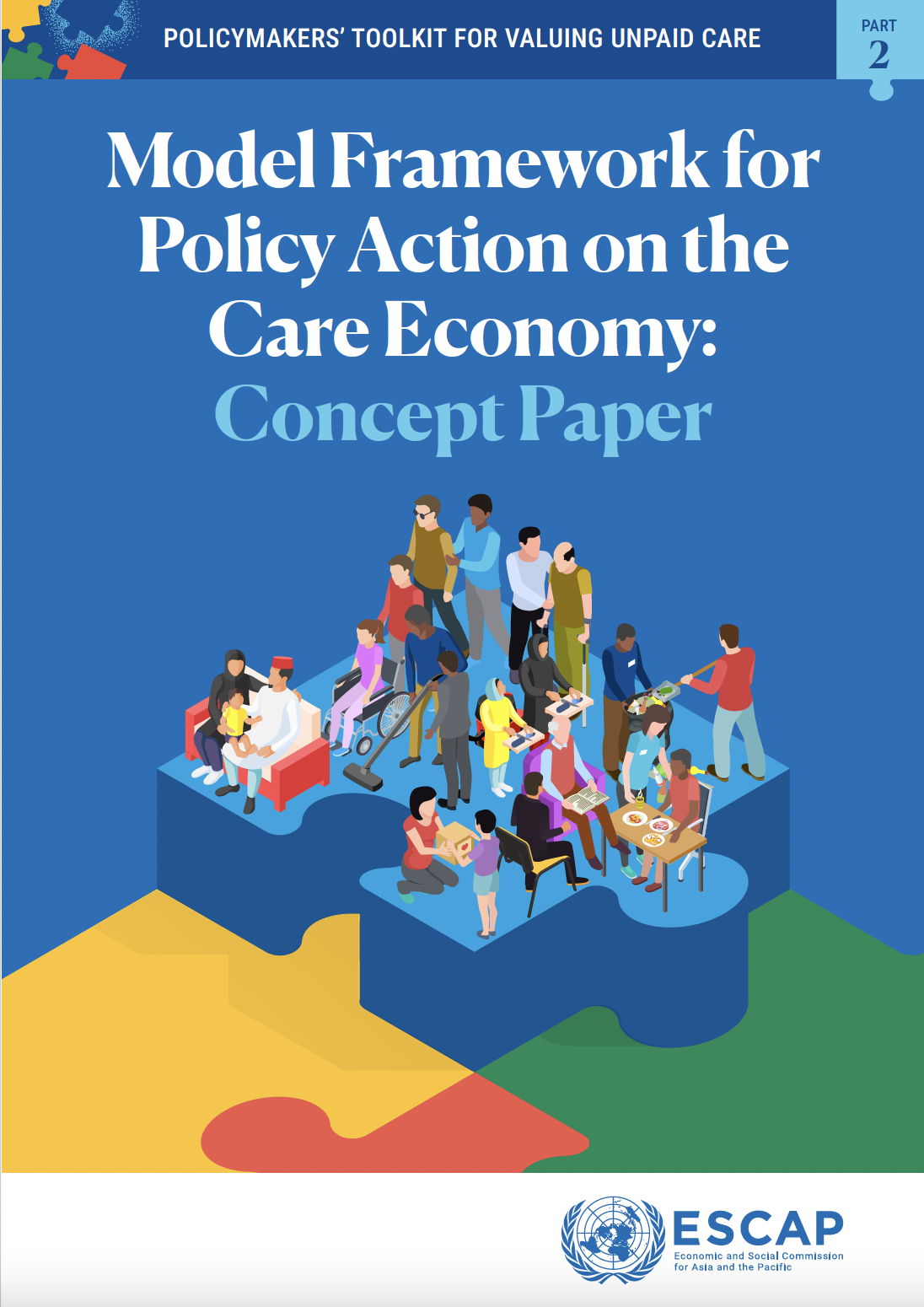
Model framework for policy action on the care economy : Concept Paper
The United Nations Economic and Social Commission for Asia and the Pacific has commissioned research to highlight the crucial importance of the care economy in building resilient, sustainable and equitable societies. The COVID-19 pandemic was an important wake up call for countries around the world on the need to enhance investments in building infrastructure, services, and policies that support the needs of both care givers and care recipients. However, research on policy responses in the wake of the pandemic demonstrated that out of a total 746 policy measures adopted across Asia and the Pacific region, only 28 per cent could be identified as care-sensitive. Of these 208 measures, only 12 per cent (90 measures) entailed actions that specifically addressed women’s gender differentiated needs. These findings suggest gaps in accounting for the care economy in policy design and programming.
This failure to incorporate the care needs of those who provide care and those who receive care impedes efforts to achieve the Sustainable Development Goals (SDG). SDG 5 on gender equality specifically sets a target to “recognize and value unpaid care and domestic work through the provision of public services, infrastructure and social protection policies and the promotion of shared responsibility within the household and the family as nationally appropriate”. Research on the social organization of care attests to its gendered, classed, and racialized performance. Women and girls bear a disproportionate load of unpaid care and domestic work, which intensified further during the pandemic. The lack of universal healthcare and universal social protection resulted in women being more vulnerable to gender-based violence and more likely to fall into poverty on account of their care responsibilities. Inequalities of income, geography, ethnicity, race, and other marginalized identities leave women further vulnerable to exploitation, owing to lack of legal protections, unsafe working conditions, and no recourse against exploitative employers. Tenuous access to care-sensitive infrastructure, care services, and policy support in many countries serves to exacerbate inequalities and marginalization. Inattention to the gender and care differentiated needs of people, limit the transformative potential of policies across a number of sectors.

